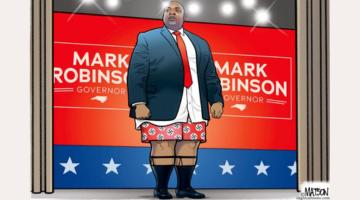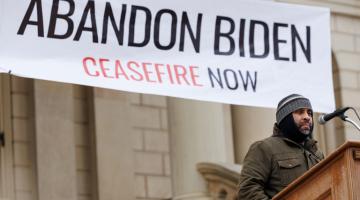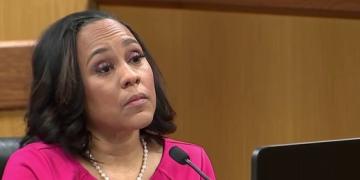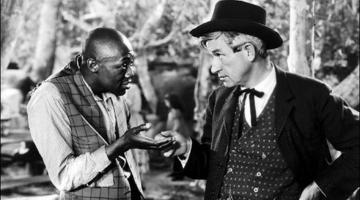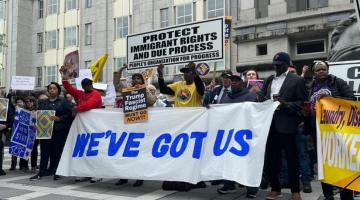The adage that "black faces in high places won't help us" still rings true when you look at Black mayors like Karen Bass, Eric Adams, and Lori Lightfoot. Residents of their respective cities have grown disillusioned and are pulling their support for their mayors.
Chicagoans could hardly wait to be rid of their Mayor, Rahm Emanuel, known mockingly as “Mayor 1 percent” for his bone-deep budget cuts that favored the wealthy; in 2013 alone, Emanuel closed 50 public schools--the most ever by any one city in a calendar year—mostly in Black and Latino neighborhoods.
Voters in 2019 replaced the retiring Emanuel with Lori Lightfoot, the first Black, openly lesbian woman in history to head a major U.S. city. But by the end of her term, Black Chicagoans in particular had grown weary of her pro-police policies; with an approval rating of less than 30 percent, she was only marginally more popular in 2022 than was Emanuel four years earlier when only 18 percent of Chicagoans endorsed his leadership.
The electorate denied Lightfoot’s reelection bid, opting instead for a “hip young social studies teacher with dreadlocks… (who) taught at an elementary school that served a public housing project,” as Chicago Magazine described Brandon Johnson’s early career in a 2024 article. Continuing, the magazine wrote that “his lessons came from a radical, developing nations perspective. While teaching a unit on South Africa, he talked about the apartheid system’s “political decisions that criminalize Blackness” and “lack of investment, particularly around housing.”
When he was elected in 2022, it was not uncommon for Black Chicagoans to wonder aloud if Johnson wouldn’t be the second coming of the city’s first African American Mayor, Harold Washington, whose redistributive policies, while short-lived, were transformative.
Two years into Johnson’s administration, however, only two questions remain: first, will Johnson be the first mayor in Chicago history to be recalled and secondly, is he worse than Emanuel?
The answer to the second question, at least by one measure, is a resounding “yes!” Johnson’s approval rating stands at 14 percent—a historic low—and a staggering 80 percent of respondents in Chicago disapprove of the 46-year-old Democrat.
The reasons are myriad but can be boiled down to the city’s rising crime rate, Johnson housing newly arrived Latino immigrants in poor, African American communities that have already been shortchanged of resources, and a scheme to enrich investors by pressuring Chicago’s school superintendent to take out a high-interest, $300 million loan to pay for teacher pay raises.
Johnson’s relationship to the increasingly unpopular Chicago Teachers’ Union combined with his failure to address rising crime rates and the immigrant crisis has sparked not one but two measures to recall him.
The first is a petition drive to put a recall ordinance on the Chicago ballot later this year. Dubbed "Recall This Fall," the ballot initiative is reminiscent of Harold Washington’s catchy campaign slogan, “we shall see in 83,” and would require 56,464 verified signatures from Chicago voters to get on the ballot.
The second is legislation introduced in the Illinois legislature in January by state Representatives Anthony De Lucca and LaShawn Ford. House Bill 1084 would create a recall process for elected officials similar to that in California. Representative Ford first introduced the bill in 2015 in response to Emanuel’s mishandling of the fatal shooting of a Black teenager, Laquan MacDonald, by a white police officer. He has introduced the legislation every year since but many experts say Johnson’s unpopularity might yield a different result in this year’s general assembly.
“I think there is a push now much greater than it’s ever been,” Ford, a Democrat who has worked closely with Johnson, told reporters.
A senior director of labor policy at the Illinois Policy Institute, Mailee Smith told Black Agenda Report that Ford’s bill “has legs this year.”
“The people of Chicago are unhappy and if they have the opportunity to recall Johnson, I don’t think it would be terribly difficult for them to do.”
White backlash to big city, African American mayors is nothing new but across the country, Black voters are expressing their dissatisfaction with this generation of African American mayors in ways that would’ve been unimaginable in the days of Washington, D.C. Mayor Marion Barry, or Detroit Mayor Coleman Young to name a few who assumed office in the years immediately following the 1965 Voting Rights Act,
Los Angeles Mayor Karen Bass' approval rating has plummeted following the wildfires that destroyed parts of the city, including historically Black neighborhoods such as Altadena, according to a new independent poll released last month.
The survey found that 54 percent of likely voters in Los Angeles disapprove of Bass’ handling of the fires which spread beyond the city’s borders and across Los Angeles county.
In New York, frustration with Mayor Eric Adams’ deep budget cuts, the shortage of affordable housing and a federal indictment on corruption charges has weakened considerably the Black and Latino coalition that he rode into Gracie Mansion in 2021. Only 41 percent of Black respondents said they approve of his job performance, compared to 26 percent of Hispanics and 17 percent of whites. His overall approval rating stands at a Lori Lightfoot-esque 28 percent.
Concerns about crime and a series of scandals has left New Orleans Mayor LaToya Cantrell with an approval rating of only 30 percent in a city that is nearly 60 percent African American. Washington D.C. Mayor Muriel Bowser’s approval ratings have dropped nearly 10 percentage points in her third term in office amid growing concerns about crime, poor outcomes for students enrolled in the city’s public schools and the widespread sentiments of Blacks in D.C. that her administration caters to the mostly white, gentrifiers who have reduced Chocolate City’s Black population from 60 percent in 2000 to about 43 percent in 2022.
Dr. Wilmer Leon, a political scientist, podcaster, author, and host of a popular radio talk show, told Black Agenda Report that the climbing disapproval ratings for Johnson, Bass and Adams’ reflects the increasingly tenuous relationship between today’s Black politicians and their African American constituents.
“When you look at people like Coleman Young and Andy Young they came out of the struggle, grassroots organizing, labor organizing, in the cities, in the communities in the neighborhoods, they understood what the struggle was about. We are 3 or 4 generations removed from that cadre of leadership.”
Whereas Marion Barry was an organizer for the Student Nonviolent Coordinating Committee, or SNCC, and Young came out of Detroit’s labor organizing movement, (at one time testifying defiantly before the notorious House Un-American Activities Committee) “Karen Bass was on the board of directors for the National Endowment for Democracy,” Leon said, referring to the agency’s reputation as a tool of U.S. imperialism abroad.
“People like Bass rode the coattails of their predecessors into paychecks.
Their politics, their allegiance is not to Black people who got them elected to office but to their corporate sponsors and party handlers. This is a whole different political reality.”
That is especially true in Chicago where Mayor Johnson’s dramatic fall from grace mirrors that of the Chicago Teachers Union, which was enormously popular just a few years ago, and widely known for their commitment to students.
But Mailee Smith of the Illinois Policy Institute told BAR that a series of CTU strikes, the union leadership’s support of Johnson’s proposal to borrow $300 million to fund teachers’ pay raises, and data that shows that only one in three Chicago Public School students read at grade level, has turned much of the city against the institution; while nearly 60 percent approved of the CTU in January of 2023, the union garners only about 30 percent approval ratings today.
“This has happened very quickly, Smith told BAR, “and Johnson has been impacted because he has failed to distance himself from the CTU.”
Even more bizarre, Smith said, is that the entire school board resigned rather than vote to compel the school superintendent t—o borrow a $300 million loan for teachers’ salaries. Johnson appointed a new board to fire the superintendent but the city is contractually obliged to keep him on the job until the end of the school term. Smith and other experts say that Johnson may win the battle over the CTU’s funding but it looks increasingly likely that he will lose the war, and City Hall.
Black people long ago lost the political war with elected officials who represent interests other than their own.
Jon Jeter is a former foreign correspondent for the Washington Post, Jon Jeter is the author of Flat Broke in the Free Market: How Globalization Fleeced Working People and the co-author of A Day Late and a Dollar Short: Dark Days and Bright Nights in Obama's Postracial America. His work can be found on Patreon as well as Black Republic Media.



